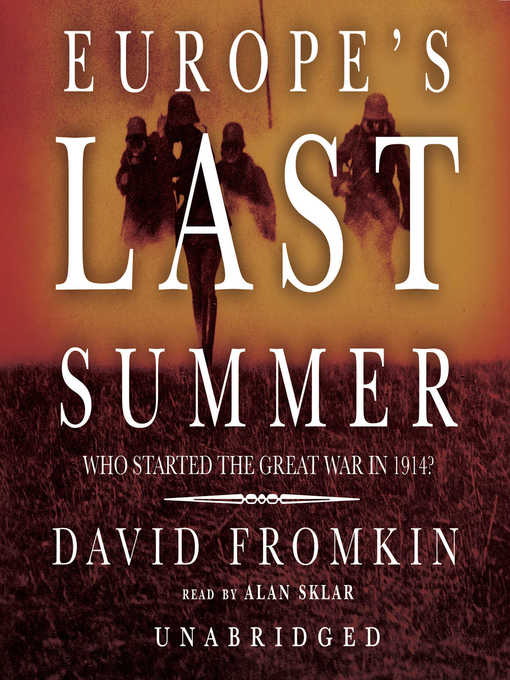The early summer of 1914 was the most glorious Europeans could remember. But, behind the scenes, the most destructive war the world had yet known was moving inexorably into being, a war that would continue to resonate into the twenty-first century.
The question of how the Great War of 1914 began has long vexed historians. In a gripping narrative, Fromkin shows that hostilities were started deliberately and that two wars were waged, one serving as pretext for the other.
Shedding light on such current issues as preventive war and terrorism, Fromkin provides detailed descriptions of the negotiations and incisive portraits of the diplomats, generals, and rulers as he reveals why diplomacy was destined to fail.

